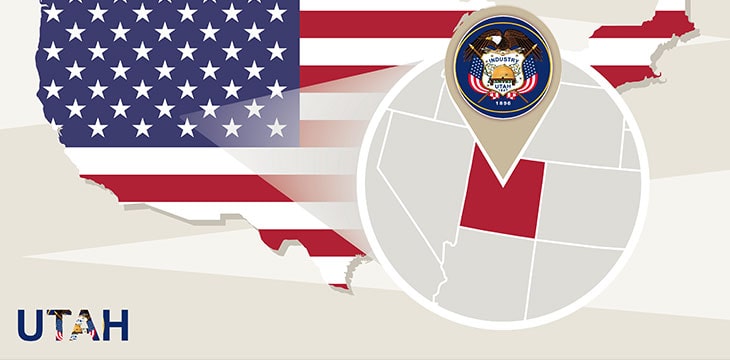|
Getting your Trinity Audio player ready...
|
Spenser Cox, the governor of Utah, has approved a bill paving the way for the creation of a blockchain and digital innovation taskforce in the state. Named House Bill 335 (H.B. 335), the bill was first introduced to the state’s legislature back in February.
The bill mandates that the task force will work on policy recommendations for the state’s adoption of digital currency and blockchain technology. The task force will also make recommendations for developing non-financial incentives for the adoption of blockchain technology in the state. In part, the bill reads:
“[The task force shall] develop and introduce recommendations regarding policy pertaining to the promotion in the state of the adoption of blockchain, financial technology, and digital innovation.”
The working group will be made up of 20 appointed by both the State Senate and the House of Representatives. The state’s Division of Finance will provide supporting staff. The task force will also be required to report annually to the Business and Labor Interim Committee and the Legislative Management Committee of Utah’s senate.
According to a report by Utah-based news outlet KUTV, the governor of Utah outlined the rationale behind the task force. In a town hall meeting, Cox stated that the recommendations will help to protect Utahns without stifling innovation in the “emerging market.”
“My vision is actually clouded a little bit by what I don’t know and that’s, that’s the way it works with emerging technologies, and so we have to be careful,” he said.
KUTV also reports that the second bill in Utah’s senate—House Bill 456—will allow the state to start accepting digital currency. Jordan Teuscher, who proposed the bill, explained that it would help signal that Utah is welcoming to the virtual currency industry.
Utah’s long history of digital currency friendly regulatory climate
The just-approved committee is the product of several years of considerations the state has been giving to regulating the digital currency space. Back in 2019, Utah launched what it called a regulatory sandbox of fintech startups in the blockchain industry.
At the time, the state declared its intention to provide a light regulatory environment for the industry. Subsequently, the state also approved the use of blockchain to store medical records.
Meanwhile, this year the U.S. has seen several states carving out their regulatory frameworks for digital currencies accelerated. A National Public Radio report says the states could be in part motivated by the still existing lack of regulatory clarity from the federal government.
Watch: SEC Commissioner Hester Peirce on Bitcoin Association’s Blockchain Policy Matters

 02-28-2026
02-28-2026 




